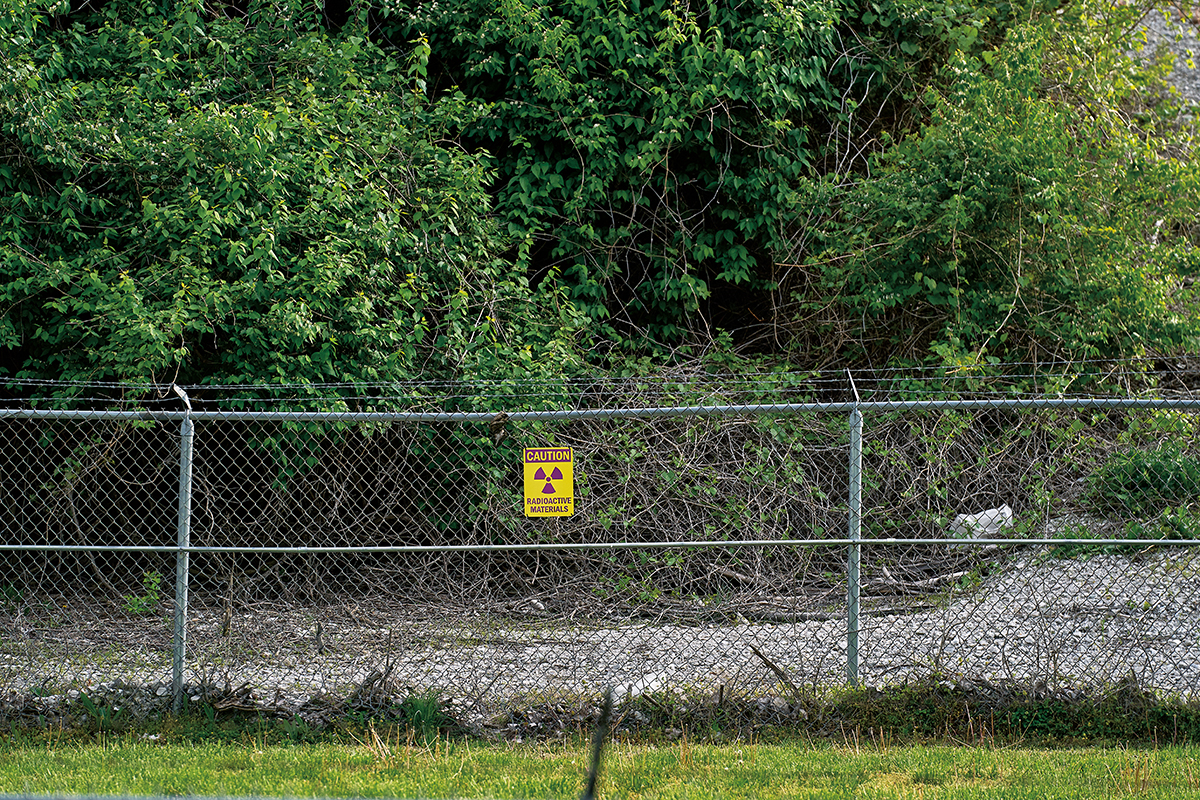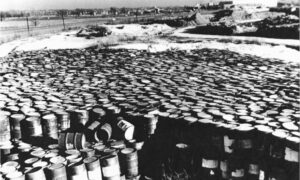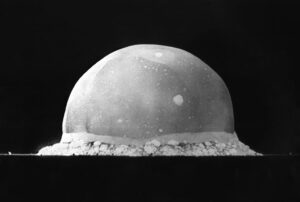21:10
News Story
U.S. House may consider extending nuclear weapons damages program without Missouri
Hawley, Wagner, Bush vow fight against bill to renew program set to expire June 10 if Missouri is excluded
A proposal to renew compensation for cancer victims who were exposed to radioactive material from the nation’s weapons development without expanding the program to Missouri and several other states amounted to a betrayal, Missouri advocates and lawmakers said Tuesday.
Members of Congress from Missouri learned late Tuesday that U.S. House Speaker Mike Johnson plans to extend the federal program for two years despite pressure from communities harmed by nuclear bomb testing and waste to expand the program.
The announcement dealt a huge blow to advocates from St. Louis, the Navajo Nation and other communities that have been left out of the program, originally created in the 1990s. The existing program covers civilians in parts of Arizona, Utah and Nevada and uranium miners.
“I cannot believe how emotionally manipulated we feel that Speaker Johnson would sit back and allow sick and dying community members to beg him for a meeting for months — then to spend (an) hour and a half with staff only to have the door slammed in our faces!” Dawn Chapman, co-founder of Just Moms STL, said in a social media post.
Chapman was reacting to a post from U.S. Sen. Josh Hawley, a Republican from Missouri, who said Johnson told Hawley’s office he’ll seek a bill that doesn’t cover either state. Hawley said he’ll put up roadblocks to keep any such bill from passing the Senate without a fight.
“Total dereliction,” Hawley said. “No member from Missouri can possibly vote for this.”
Since last summer, Hawley has been pushing for an expansion of the Radiation Exposure Compensation Act, which was initially passed in 1990 and offered compensation to uranium miners and residents who lived downwind of nuclear bomb testing sites in certain states.
Hawley’s legislation, which has twice passed the U.S. Senate, would expand the program to “downwinders” in the remaining parts of Arizona, Utah and Nevada and bring coverage to downwinders in Colorado, Idaho, Montana, New Mexico and Guam. It would also expand coverage to those exposed to radioactive waste in Missouri, Tennessee, Alaska and Kentucky.
The existing RECA program expires June 10, and advocates and lawmakers from states hoping to be brought into the program have been urging Congress to renew and expand it.
U.S. Rep. Ann Wagner, a Republican from the St. Louis suburbs, said on social media that a RECA bill without Missouri “is dead on arrival.”
“I will continue to fight for the expansion of RECA so Missourians are given the justice they deserve,” she said. “The House can and must take up the Senate-passed version.”
U.S. Rep. Cori Bush, a Democrat from St. Louis, also wrote on social media that “failing to expand RECA is not a viable option.”
“Next week, Speaker Johnson plans to rip off Missourians and thousands of others who are suffering from radioactive waste dumped in our backyards by the federal government,” Bush said.
Parts of the St. Louis area have been contaminated for 75 years with radioactive waste left over from the effort to build the world’s first atomic bomb during World War II. Uranium refined in downtown St. Louis was used in the first sustained nuclear chain reaction in Chicago, a breakthrough in the Manhattan Project, the name given to the effort to develop the bomb.
After the war, waste from uranium refining efforts was trucked from St. Louis to surrounding counties and dumped near Coldwater Creek and in a quarry in Weldon Spring, polluting surface and groundwater. Remaining waste was dumped at the West Lake Landfill in Bridgeton, where it remains today.
Generations of St. Louis-area families lived in homes near contaminated sites without warning from the federal government. A study by the federal Agency for Toxic Substances and Disease Registry found exposure to the creek elevated residents’ risk of cancer. Residents of nearby communities suffer higher-than-normal rates of breast, colon, prostate, kidney and bladder cancers and leukemia. Childhood brain and nervous system cancers are also higher.
Johnson’s office did not immediately return a request for comment.
Our stories may be republished online or in print under Creative Commons license CC BY-NC-ND 4.0. We ask that you edit only for style or to shorten, provide proper attribution and link to our website. AP and Getty images may not be republished. Please see our republishing guidelines for use of any other photos and graphics.





